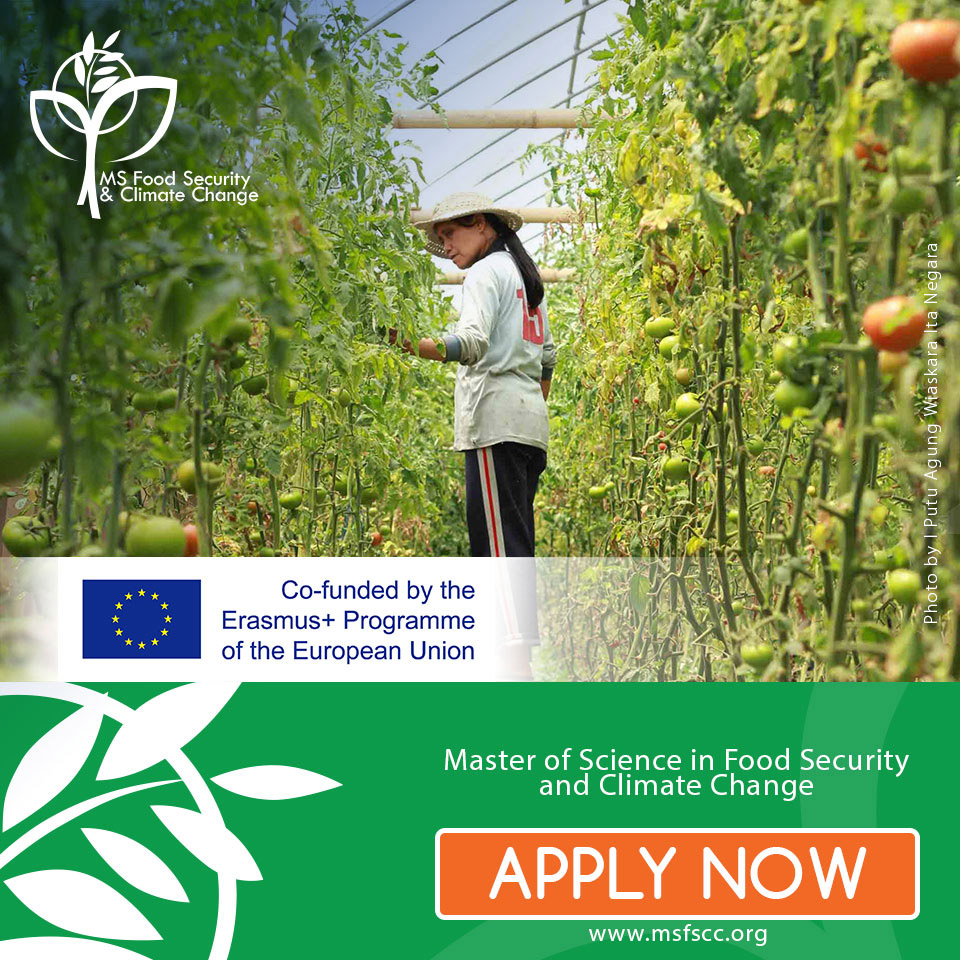The Master of Science in Food Security and Climate Change (MS FSCC) is a joint degree offered by five members of the University Consortium for Graduate Education in Agriculture and Natural Resrouces (UC), namely Kasetsart University (KU) in Thailand, University of the Philippines Los Baños (UPLB) in the Philippines, Universiti Putra Malaysia (UPM) in Malaysia, Institut Pertanian Bogor (IPB) and Universitas Gadjah Mada (UGM), both in Indonesia.
The program is partially-funded by the European Commission’s ERASMUS + Capacity Building for Higher Education. The ERASMUS project is being led by Kasetsart University (KU) and involves 11 other partners from Southeast Asia and 5 partners from Europe.
The MS FSCC involves a compulsory mobility of students within the UC. Thus, each MS FSCC student will be enrolled in two universities, be supervised jointly by professors from these universities, and have a joint thesis defense. The ERASMUS+ funding also provides for excellent students to go on mobility to the EU partners, and for EU students to go on mobility to the UC member universities. The students will also attend summer schools that will serve as enhancement courses for the MS FSCC.
For a quick response to your inquiry, you may send a message to our secretariat at info@msfscc.org.
MS FSCC Highlights
MS FSCC has a holistic approach to studying food security and climate change as the student will be exposed to the expert knowledge and cultural perspective from two universities in Southeast Asia. The student research is jointly supervised by advisers from these two universities and there is also a joint thesis defense.
The ERASMUS+ funding provides excellent students in the MS FSCC a chance to spend one semester in a partner university in Europe to take courses for credit, or conduct thesis research, or do both.
The MS FSCC is a product of the 29-year collaboration of the members of the Southeast Asian University Consortium for Graduate Education in Agriculture and Natural Resources.
Visit : http://msfscc.org/























